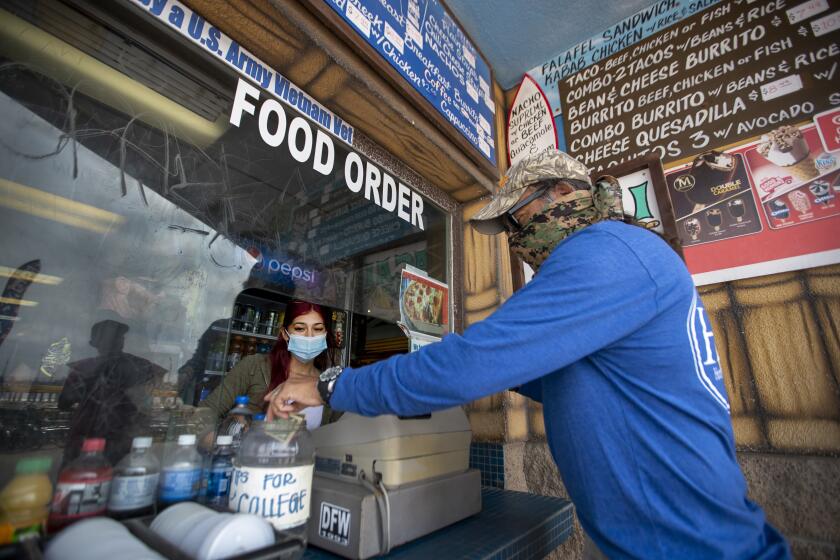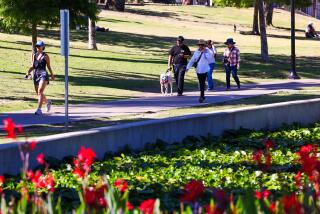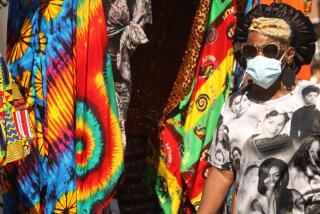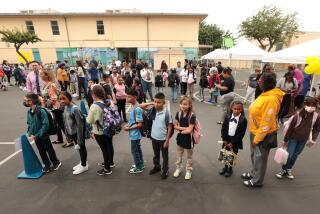A Labor Day-fueled coronavirus surge? ‘Troubling trend,’ but no clear evidence
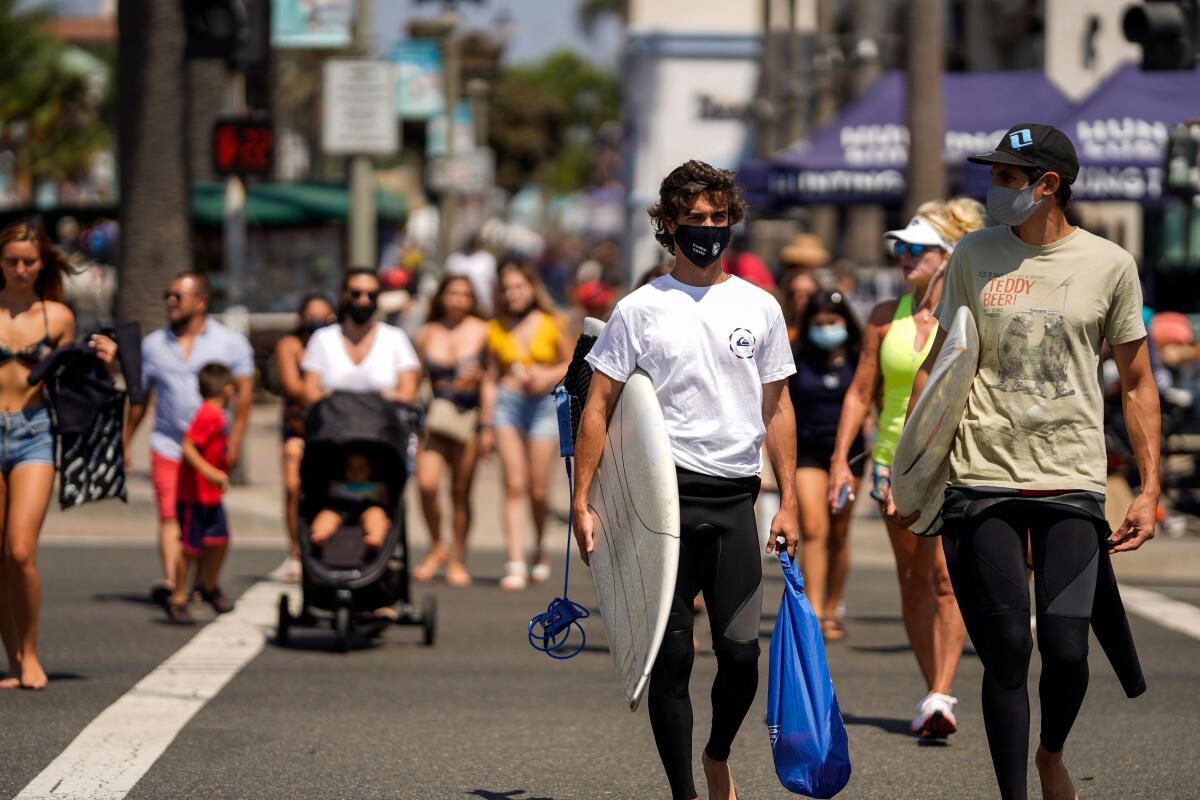
- Share via
When Los Angeles County officials explain the massive coronavirus outbreak that hit this summer, they often point to Memorial Day and the Fourth of July, two long weekends when gatherings with friends and family fueled the spread of the virus.
Now, two weeks after the Labor Day holiday, officials worry the same pattern is emerging.
On multiple days last week, L.A. County reported more than 1,000 new cases of the coronavirus, an uptick from the week prior. There isn’t yet enough data to draw clear conclusions, but the “troubling trend” echoes what happened earlier this year, said L.A. County Public Health Director Barbara Ferrer.
“We do have four days of data from last week that showed a significant increase in the number of cases,” she said at a news briefing Monday. “We’re going to have to pay attention to the data this week.”
The picture could become clearer as soon as Wednesday, when a new daily case count will be issued and Ferrer will hold another news conference.
Since it can take up to two weeks to show symptoms after becoming infected, these cases could be ones that were contracted during the Labor Day holiday, she said.
But other than the timing, there is no indication that gatherings over the long weekend are the cause. Even the surges that came after Memorial Day and the Fourth of July were linked to other factors as well, including protests and a rapid reopening of businesses that ultimately had to be rolled back.
With the situation continuing to improve, Orange County officials said this week that a wider reopening of businesses could be around the corner.
In early to mid-September, daily coronavirus case counts were lower than usual, in part because testing sites were closed due to a combination of extreme heat, fires and hazardous air quality, Ferrer said. So it’s possible that people who delayed testing then, when capacity was limited, may be getting tested now, temporarily inflating the case counts.
Ferrer said she was “cautiously optimistic” that case counts would begin to fall again, but could not be certain the increases are just a blip until later in the week.
Other indicators of coronavirus transmission in L.A. County remain flat or are dropping. The county’s positivity rate — the percentage of tests administered that are coming back positive — has steadily declined over the past six weeks and sits at a record low, according to county data. The number of people in the hospital with COVID-19 is also lower than it has been since at least April, according to Times data.
On July 18, a few weeks after the July 4 holiday, there were 2,232 people in the hospital with COVID-19. On Sunday, there were 745.
Regardless, the recent increase in coronavirus transmission sets L.A. County back on its progress toward reopening.
To move into the next tier of reopening, the county needs to see only seven new coronavirus cases each day per 100,000 residents, maintained consistently for two weeks. Once it reaches that goal, restaurants, gyms, churches and more would be allowed to open indoors at limited capacity.
The county met that standard in the week of Sept. 6-12, but the latest surge in cases will likely put it out of its grasp again.
More to Read
Sign up for Essential California
The most important California stories and recommendations in your inbox every morning.
You may occasionally receive promotional content from the Los Angeles Times.
